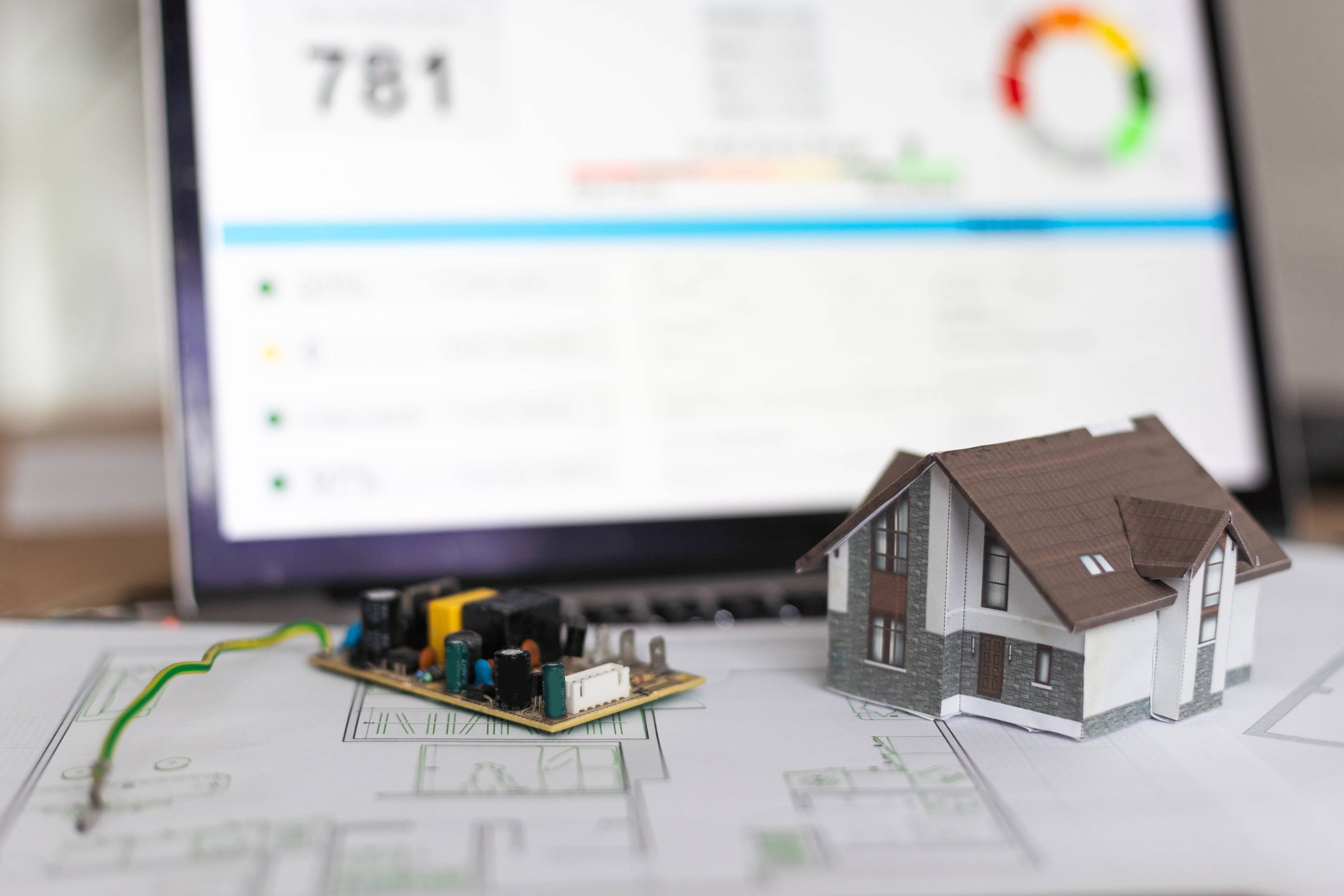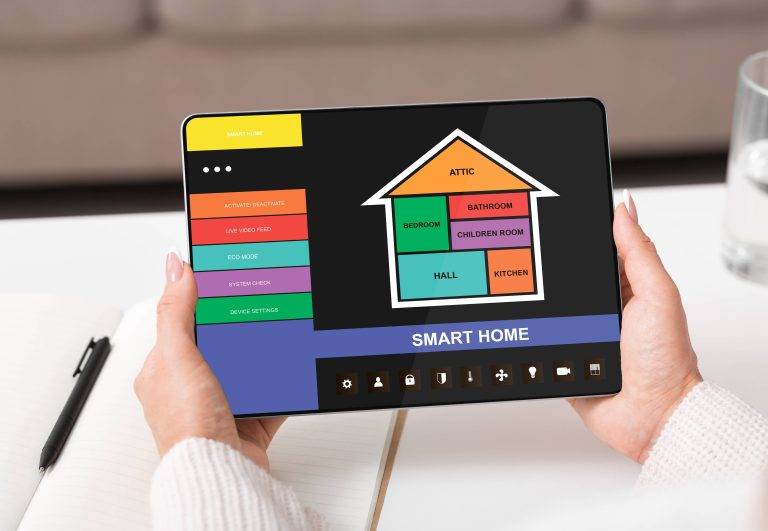
In recent years, the concept of the smart home has shifted from science fiction to everyday reality. The advent of smart devices and integrated technology has transformed how we interact with our living spaces, creating more convenient, comfortable, and efficient environments. At the heart of this transformation lies artificial intelligence (AI) – a revolutionary technology that’s driving significant advancements in energy management for smart homes.
The Interplay Between AI and Energy Efficiency
Artificial intelligence is fundamentally reshaping energy management by enabling smart homes to optimize energy use intelligently and autonomously. AI’s role can be divided into several critical areas, each contributing to overall energy efficiency and sustainability.
1. Intelligent Automation:
AI-powered home automation systems can control heating, cooling, lighting, and appliances based on real-time data and predictive analytics. For instance, smart thermostats, such as Google’s Nest or Ecobee, use machine learning algorithms to learn homeowners’ schedules and preferences, adjusting temperatures accordingly. This ensures optimal energy use, reducing waste without compromising comfort. By maintaining efficient energy consumption, these systems significantly cut down on utility bills and lower carbon footprints.
2. Predictive Maintenance:
AI-driven predictive maintenance helps keep energy-consuming devices in optimal working condition. By analyzing data from various household appliances and systems, AI can predict potential faults or inefficiencies. This enables timely maintenance, preventing unnecessary energy losses and extending the lifespan of the devices. Smart refrigerators, for instance, can alert homeowners about potential issues, ensuring they are addressed before escalating into energy-draining problems.
3. Energy Consumption Monitoring and Analysis:
AI algorithms analyze vast amounts of data from smart meters and sensors throughout the home to provide insights into energy consumption patterns. These insights help homeowners understand and manage their energy use more effectively. Platforms like Sense and Neurio utilize AI to identify and track the electricity consumption of specific appliances, empowering users to make informed decisions about their energy habits. Such granular visibility can lead to significant reductions in energy consumption.
4. Dynamic Pricing and Load Shifting:
AI enables smart homes to take advantage of dynamic pricing models offered by utility companies. By analyzing energy prices and predicting peak demand periods, AI systems can shift energy-intensive tasks, such as running the dishwasher or charging electric vehicles, to off-peak hours when electricity rates are lower. This not only saves money for consumers but also alleviates pressure on the grid during peak times, promoting overall energy sustainability.
5. Renewable Energy Integration:
Integrating renewable energy sources like solar panels and wind turbines with smart home systems becomes seamless with AI. AI algorithms can predict energy production based on weather forecasts and historical data, optimizing the use of renewable energy and minimizing reliance on non-renewable sources. Excess energy generated from renewables can be stored in home batteries or fed back into the grid, enhancing energy resilience and sustainability.
6. Behavioral Insights and Recommendations:
AI doesn’t just analyze data; it also provides actionable recommendations to homeowners. Smart assistants, like Amazon’s Alexa or Google Assistant, can suggest energy-saving tips based on daily routines and consumption patterns. For example, they might recommend using energy-efficient lighting during specific times of the day or advise on upgrading to more efficient appliances. These personalized suggestions empower users to make conscious choices that align with sustainability goals.
The Broader Impact on Sustainability
The widespread adoption of AI in smart home energy management extends beyond individual households. Collectively, the cumulative impact of numerous smart homes optimizing their energy use can lead to substantial societal benefits, contributing to broader sustainability efforts.
1. Reducing Carbon Emissions:
As smart homes become more energy-efficient, there is a corresponding reduction in carbon emissions. Heating, cooling, and appliances are among the most significant contributors to household energy consumption. By optimizing these systems, AI helps lower greenhouse gas emissions, playing a crucial role in combating climate change.
2. Enhancing Grid Stability:
AI-driven energy management in smart homes enhances grid stability by smoothing out demand peaks and valleys. During high-demand periods, AI can defer certain energy-consuming activities, reducing strain on the grid. This not only prevents blackouts but also enables more efficient use of energy resources, making the grid more resilient and reliable.
3. Promoting Renewable Energy Adoption:
AI’s ability to seamlessly integrate renewable energy sources into smart home systems promotes their adoption. Homeowners are more likely to invest in solar panels or wind turbines if they can efficiently manage and utilize the generated energy. The increased uptake of renewable energy sources contributes to a greener energy mix, reducing dependency on fossil fuels.
Challenges and Future Directions
While the role of AI in energy management for smart homes is promising, several challenges must be addressed to maximize its potential:
1. Data Privacy and Security:
The extensive data collection required for AI-driven energy management raises concerns about privacy and security. Manufacturers and service providers must prioritize robust data protection measures to safeguard personal information.
2. Interoperability:
The proliferation of various smart devices and platforms can lead to interoperability issues. Standardizing communication protocols and ensuring compatibility among different systems will be crucial for seamless integration and optimal performance.
3. Affordability and Accessibility:
For widespread adoption, AI-powered energy management solutions must be affordable and accessible to diverse demographic groups. Innovative business models and incentives can help bridge the gap and make these technologies more widely available.
Conclusion
The role of artificial intelligence in energy management for smart homes is transformative, offering unprecedented opportunities for energy efficiency and sustainability. By intelligently managing energy consumption, facilitating renewable energy integration, and providing actionable insights, AI empowers homeowners to reduce their carbon footprint and contribute to a more sustainable future. As technology continues to evolve, it is essential to address emerging challenges to unlock the full potential of AI in creating smarter, greener homes for everyone.







